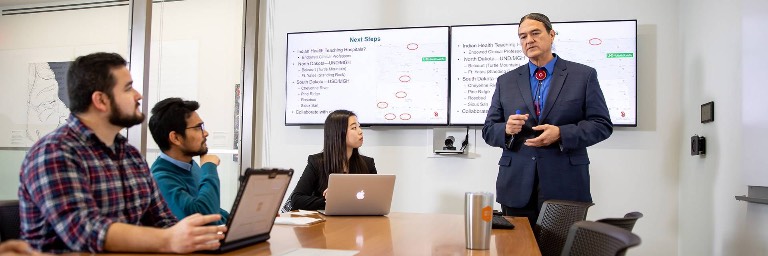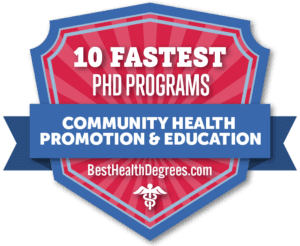Indigenous Health Ph.D.
Your hard work can close the gap in disease disparities for diverse populations.
UND's doctoral degree in Indigenous Health is the first of its kind in the United States or Canada. It will give you a deeper understanding of the unique health issues facing Indigenous populations. With its evidence-based approach to Indigenous health, the program prepares you to join the elite group of forward-thinking, culturally aware experts. We are setting new standards in the promoting Indigenous Health worldwide.
- Program type:
- Doctoral Degree
- Format:
- Online
- Est. time to complete:
- 3 years
- Credit hours:
- 60
Why earn a doctorate in Indigenous Health?
Indigenous Health Ph.D. at UND
-
Choose either the academic or applied track. The first for those who want to lead at a university, and the second for those seeking careers within Indigenous communities.
-
Students must complete a dissertation. UND anticipates all will have publish-ready material. Our dedicated faculty will help students find opportunities to present their work at national and international conferences.
-
Students can live anywhere while they earn their doctorate. Curriculum is available online with interactive video and requires two weeklong on-site sessions.
-
Grow your network by joining national and international Indigenous Health organizations
-
Study abroad with partnering universities in Norway, Canada, Australia or New Zealand.
-
Conduct research at our Indigenous Trauma & Resilience Research Center or American Indian Collaborative Research Network (AICoRN).
Indigenous Health Ph.D. Careers
Indigenous Health Ph.D. Courses
Online Indigenous Health Ph.D.
Leaders in Indigenous Health
We were the first Indigenous health program in the world.
Gain a deeper understanding of the unique health issues facing Indigenous populations at UND.


